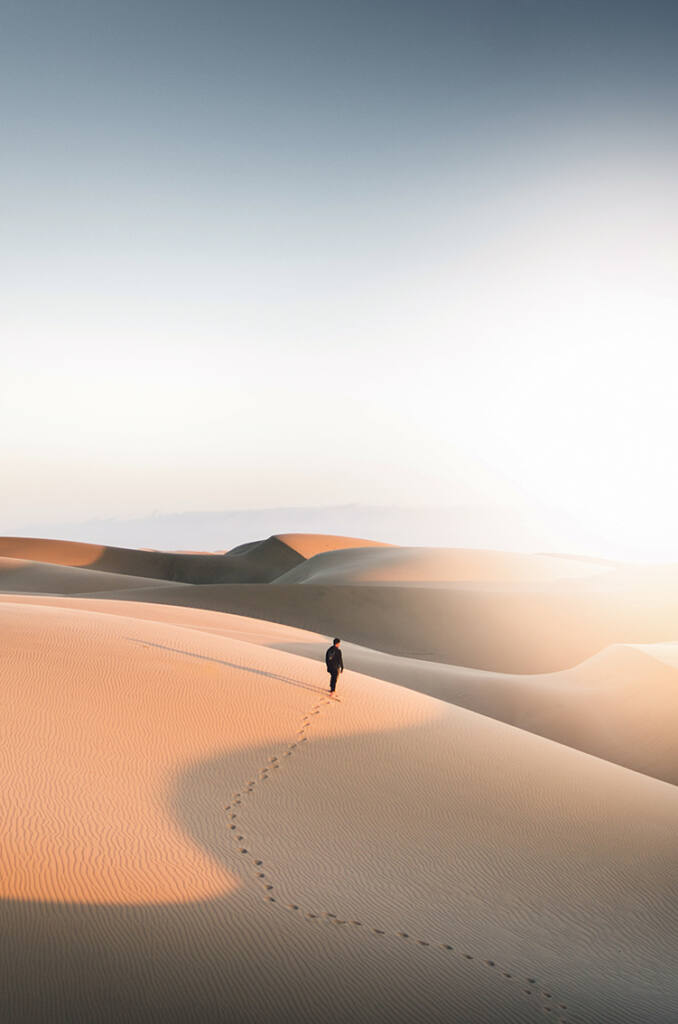WelCom February 2021
Rāapa 17 o Huitanguru – Rāpare 1 o Paengawhāwhā 2021 | Wednesday 17 February – Thursday 1 April 2021
He Pono, he manatapu te atua o te koraha | God of the desert is real and active
James Lyons, Priest of the Archdiocese

An ancient prayer begins, O God of the desert… and I’ve wondered about that title, considering that the desert is such a dry, barren and unfriendly place.
A desert conjures up thoughts of loneliness, deprivation, death and decay.
Who would want to be a god of the desert?
Yet deserts are not without life. Or beauty. Or purpose.
Despite hostile conditions and lack of water, plants, animals and people have adapted to be able to survive in the harsh environment, although their situation can never be ideal.
This makes the desert a powerful symbol for people of faith and for the development of faith.
The desert teaches me that I cannot survive on my own; that I do not have all the skills necessary to live well; that I am not an independent entity…
The Season of Lent opens this month, inviting us into the desert, to reflect on our lives and on our responsibilities to ourselves, to others and to the world around us.
It is also, and especially, the season to check my relationship with God and perhaps to ponder in a new way that strange title, God of the desert.
“The 40 days of Lent enable us to step into a time of ‘being without’ so we can ‘look within’.”
In the desert I am stripped of my usual comforts and security. I’m denied the distraction of work and socialising. There are no certainties, except the vastness and emptiness of what surrounds me.
A critical and blessed time in which to face myself.
The Hebrew scriptures place great emphasis on the desert. It is where God led the Israelites after freeing them from slavery in Egypt, forming them into a community, forcing them to rely on one another, working and travelling together and naming them as God’s own people.
The Psalms keep the theme alive, reminding the people that, even in the midst of sorrow and distress, God did not abandon them but helped them through the terror of the wasteland. Their God was a God with feelings, unlike the Pagan gods who ‘have mouths but do not speak, eyes but do not see…’ ‘(Ps. 114, 115).
The God of the Hebrews would use the desert not only to form the people but to nourish and strengthen them: ‘…gave them food from heaven in abundance…opened the rock and water gushed out; it flowed through the desert like a river.’ (Ps. 105)
Psalm 108 can be prayed as a response to becoming aware of God’s presence and action in my life. God’s ‘steadfast love’ and ‘faithfulness’ is more than I deserve. The experience of the desert has taught me I cannot live without God’s guidance and protection, nor in isolation from others – who I can now recognise as sisters and brothers.
John the Baptist lived in the wilderness. Jesus spent time there, knowing hunger and thirst and temptation. Emerging from their desert experience both found the strength and courage for the witness they were each called to give.
The 40 days of Lent enable us to step into a time of ‘being without’ so we can ‘look within’. It is a risk worth taking. The opening of minds and hearts to a new way of understanding God’s presence and our connection with the whole of creation awaits those who put their trust in the God of the desert.
The outcome – Easter – can be nothing other than praise and thanksgiving, joy and gladness.
A Lenten Prayer
O God of the desert.
In the wilderness of my life I need your guiding hand.
As you guided the Hebrew people in their time of unknowing,
lighting their way through trackless wasteland,
be my light to ease my aloneness and my fear.
Teach me the wisdom of the desert
as I search within myself.
Brush the sand from the eyes of my heart
that I might see clearly your love for me
and know myself as you know me.
Lead me from the dryness of self-doubt
to the fresh flowing waters of your mercy and peace.
– James B Lyons